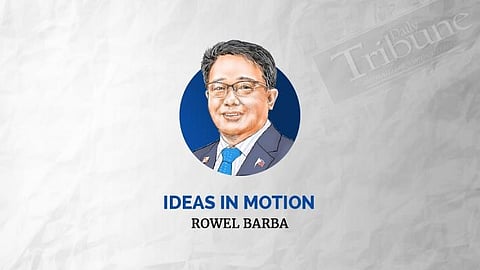
- NEWS
- the EDIT
- COMMENTARY
- BUSINESS
- LIFE
- SHOW
- ACTION
- GLOBAL GOALS
- SNAPS
- DYARYO TIRADA
- MORE

Music has become a powerful tool in advancing political agendas. At rallies, songs are played with the hope of striking a chord with voters and earning their support. Political teams craft anthems to define their promises, ambitions, and identities.
Oftentimes, however, while campaign jingles and rally songs aim to move voters to a united rhythm, they often arouse some musicians — not by the music itself, but by the madness of finding their songs used for a political campaign without their nod.
One might recall how US President Donald Trump, beginning with his first presidential campaign in 2016 and up until last year’s, was faced with a barrage of complaints from musicians and artists — ranging from contemporary superstars to the estates of deceased icons. Trump’s campaign was repeatedly criticized by the likes of Taylor Swift, Beyoncé, Celine Dion, and the Rolling Stones for using their music without permission.
In principle, artists can reject the political use of their work. However, their works are often managed by so-called collective management organizations (CMO) who offer bulk licensing rates for songs under their umbrella. This helps users like campaign teams secure music licenses without having to negotiate through an otherwise cumbersome process of dealing with each artist and rights holder over each song.
While artists can rebuke the use of their song for political gain, compliance from political parties often takes time.
What musicians can do is send cease-and-desist letters — as Rihanna did for the playing of her “Please Don't Stop the Music” at a 2018 Chattanooga rally. Pharrel Williams did the same in response to his song “Happy” also featuring in a 2018 political rally but hours after the mass shooting at the Pittsburgh Synagogue.
Some could also escalate their concerns to the courts like what the White Stripes did after the alleged use of their song “Seven Nation Army” for a campaign video and what Neil Young did for the use of his “Rockin’ in the Free World” and "Devil's Sidewalk" several times for political events.
But, of course, we all know how those stories ended.
Even after earning the ire of many in the music industry, Trump managed to clinch his second term for presidency. The voices of maddened musicians, whose works may have once united a nation in harmony and have moved many to sing along from radios and music apps, have become largely unheard.
While there are certainly more pressing global issues at hand, the violation of intellectual property (IP) rights in the music industry should not be dismissed. Many stand too far away to hear artists’ cries, viewing it as a small matter amid a larger picture. Indeed, many are unfamiliar with the painstaking process of bringing compositions from the music sheets to the charts.
With this, I congratulate the newly strengthened partnership between the Intellectual Property Office of the Philippines and the Commission on Elections. It shows how the Philippine government is helping artists reclaim their music and voice. The cooperation aims to educate voters and political candidates on the value of respecting IP rights. It hopes to make voters aware of their power in reporting violating parties and protecting the music industry and the larger creative community.
Now, our own election season is upon us — we know because this early, campaign posters are already hanging from electric wires like banderitas. Anytime soon, Vans will flood the narrow streets of Manila, their stereos blasting campaign jingles in hopes that voters will remember at least their candidate’s name and number, if not the whole package of their campaign promises.
But, we hope voters will also remember the artists who were wronged and whose battlecries fell on deaf ears, and give them justice through the ballots on 12 May.
